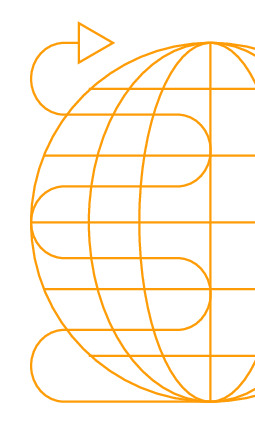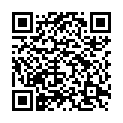|
|
|
| Module code: BITM-W-13 |
|
|
4V (4 hours per week) |
|
5 |
| Semester: 4 or 5 |
| Mandatory course: no |
Language of instruction:
German/English/French/Spanish |
Assessment:
Project (can be repeated annually)
[updated 17.09.2018]
|
BITM-W-13 (P440-0094) International Tourism-Management, Bachelor, ASPO 01.10.2013
, optional course
BITM-W-13 (P440-0094) International Tourism-Management, Bachelor, ASPO 01.10.2015
, optional course
BITM-W-13 (P440-0094) International Tourism-Management, Bachelor, ASPO 01.10.2017
, optional course
|
60 class hours (= 45 clock hours) over a 15-week period.
The total student study time is 150 hours (equivalent to 5 ECTS credits).
There are therefore 105 hours available for class preparation and follow-up work and exam preparation.
|
Recommended prerequisites (modules):
BITM-111 Principles of the Tourism Sector
BITM-240 Marketing and Market Research in Tourism
BITM-320 Management in the Tourism Industry
[updated 29.10.2012]
|
Recommended as prerequisite for:
|
Module coordinator:
Prof. Dr. Kerstin Heuwinkel |
Lecturer:
Dozierende des Studiengangs
[updated 29.10.2012]
|
Learning outcomes:
After successfully completing this module, students will have developed and deepened their knowledge of:
- health tourism terminology in the German and English-speaking world
- the dimensions of health tourism
- the phenomena with regard to the health market and social trends
- general concepts of health tourism (demand and
supply trends)
- the social framework for health tourism
- the analysis and design-(ability) of special offers in health tourism
After successfully completing this module, students will:
- have gained insights into the principles of health tourism
International and intercultural references
- Investigating (inter-) national phenomena concerning health tourism
in the context of examples from international businesses/organizations in
health tourism
Practical references:
- Economic, medical and socio-scientific science and
management concepts in health tourism
- Economic, medical and socio-scientific methods in health tourism
- Social competence
- Projects, guest lectures, excursions (together with students from different
semesters and subject areas)
- in particular economic, medical and socio-scientific
science and management concepts and methods that are important for
sustainable and responsible health tourism
Students will expand and deepen their skills in modern presentation techniques, project and team work and scientific work techniques.
After successfully completing this module, students will be able to:
- understand and analyze service-oriented problems and special aspects of health tourism and map them in planning models
- apply basic planning and control methods in the context of health tourism (strategic planning of social science instruments and their operational implementation within the framework of projects)
- describe, develop, plan and design basic service-specific processes in health tourism,
- plan, implement and control basic service-oriented strategies and concepts in health tourism
- communicate more efficiently and interact with external parties and groups
- apply the principles of motivation and teamwork
[updated 17.09.2018]
|
Module content:
- Concepts of health tourism
- The principles of health tourism
- The health market & social trends
- Health tourism (demand and supply trends)
- Health holidays (prevention, cure & rehabilitation, wellness)
- Social framework conditions for health tourism
- The analysis and design of special offers in health tourism
-
Planning marketing tools strategically for
health tourism
[updated 17.09.2018]
|
Teaching methods/Media:
-Lecture
-Case studies (excursions, if necessary)
-Role playing
-Group and project work (independent development of a concept
and its presentation)
-Discussions with students and guests
-Presentations and preparation of documentations/compositions
On the basis of selected data and case studies, students will be taught to develop concepts independently, as well as implement their concepts and reflect upon them.
[updated 17.09.2018]
|
Recommended or required reading:
In addition to the basic literature already mentioned in the modules BITM-111 and BITM-320, the following literature is recommended:
Berg, W. (2008). Gesundheitstourismus und Wellnesstourismus. München: Oldenbourg.
Böhm, K., Tesch-Römer, C. & Ziese, T. (2009). Gesundheit und Krankheit im Alter. Berlin: Robert Koch-Institut.
Bös, K. & Brehm, W. (Hrsg) (2006). Gesundheitssport - Ein Handbuch. 2. A.. Schorndorf: Hofmann.
Brittner-Widmann, A.; Rulle, M. & Kagermeier, A. (Hrsg.) (2015). Gesundheitstourismus - vom klassischen Tourismussegment zum Wachstumsbringer? Zeitschrift für Tourismuswissenschaft. Heft 1/2015
Cassens, M. (2013). Gesundheitstourismus und touristische Destinationsentwicklung. München: Oldenbourg.
Connell, J. (2011). Medical tourism. Wallingford: CABI.
Connell, J. (2013). Contemporary medical tourism: Conceptualisation, culture and commodification. Elsevier. Tourism Management 34 (2013) S. 1-13
Heuwinkel, K. (2011). Reisen der Gesundheit zuliebe. Saarbrücken: VDM-Verlag.
Illing, K.-T. (2009). Gesundheitstourismus und Spa-Management. München: Oldenbourg.
Lanz Kaufmann, E. (1999). Wellness-Tourismus in der Schweiz _ Qualitätsanforderungen an die Hotellerie. Bern: Berner Studien zu Freizeit und Tourismus.
Lanz Kaufmann (2002). Wellness-Tourismus. Entscheidungsgrundlagen für Investitionen und Qualitätsverbesserungen. Bern: Berner Studien zu Freizeit und Tourismus.
Rulle, M. (2004). Der Gesundheitstourismus in Europa _ Entwicklungstendenzen und Diversifikationsstrategien. München: Profil Verlag.
Rulle, M. (2010). Erfolgsstrategien im Gesundheitstourismus: Analyse zur Erwartung und Zufriedenheit von Gästen. Berlin: Erich Schmidt Verlag.
In addition, project-specific introductory literature in the relevant languages will be announced during the lectures.
[updated 17.09.2018]
|


